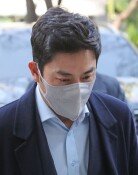Deepfake posts rampant ahead of April 10 general elections
Deepfake posts rampant ahead of April 10 general elections
Posted February. 20, 2024 07:47,
Updated February. 20, 2024 07:47
Recently, a YouTube Shorts video was uploaded featuring two politicians criticizing and mocking candidates running in the April 10 general elections. They specifically targeted a political party. The faces and voices of the politicians in the video were identical to those of real politicians. Still, upon inspection by the National Election Commission (NEC), they were found to be deepfakes created using artificial intelligence (AI).
Deepfakes are techniques used to manipulate the words or actions of famous politicians to make them appear as if they are genuine footage or images.
According to the National Election Commission on Monday, a total of 129 posts violating the Public Official Election Act, which prohibits campaigning using deepfakes, have been detected since Jan. 2. These posts use the speech or behavior of famous politicians to create realistic fake videos or images featuring them. The NEC reported instances of 'face swapping,' where politicians' faces in a video are replaced with those of others, along with their real voices. The commission added that it recognized these violations through its monitoring efforts and deleted most of them.
The political circle has concerns that the number of deepfake posts will increase as the general election approaches, making it difficult for the NEC to respond quickly with its current staff levels.
The team currently consists of 72 staff members, comprising a monitoring team, an AI identification team, an analysis and deletion team, an investigation and action team, and a review advisory team. “We will establish an AI task force in preparation for the surge in deepfakes preceding the general election,” said an NEC official.
조권형기자 buzz@donga.com







